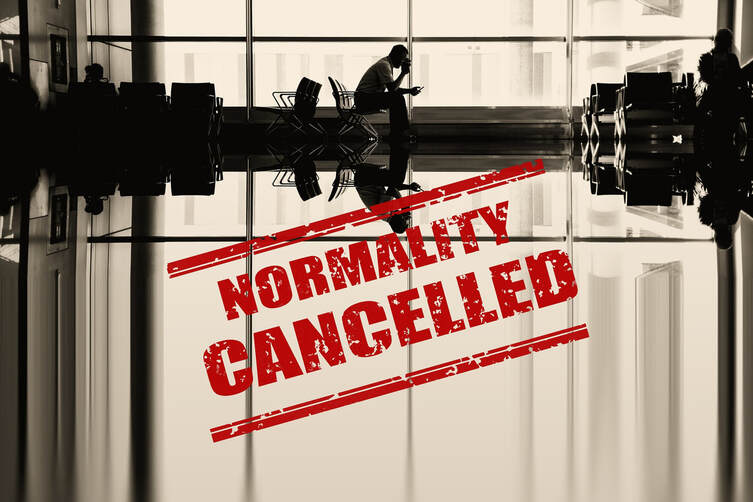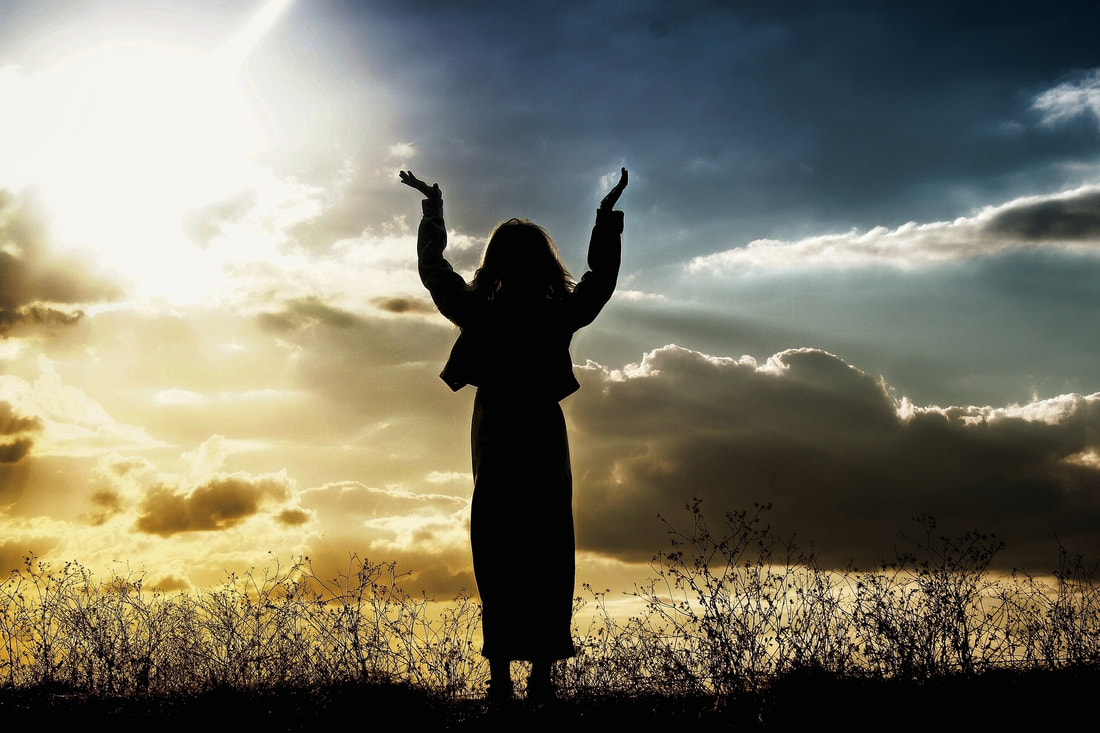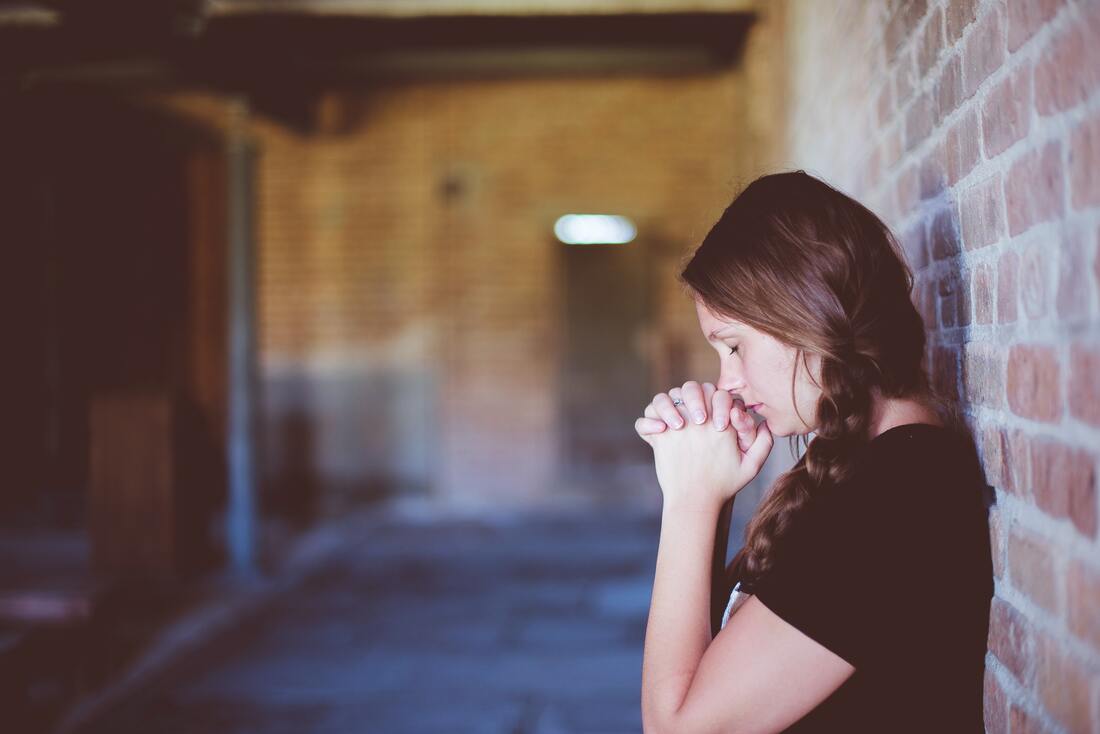Coronavirus and the Eucharist
'This crisis calls on us to care for one another and thank God at home.'
By Thomas O'Loughlin
"All Masses Cancelled"
That sign has just gone up outside my local church. Who could have imagined it just a couple of weeks ago?
Most Catholics are simply glad. Large gatherings are just what we do not want at the moment. The loving thing right now is to keep our distance lest we catch and transmit the coronavirus.
But in every parish there are Catholics who do not like the idea of "missing Mass" and wonder could they not "get Mass" even if they did not gather?
In a more worrying vein, I have heard at least two priests say that they will not have the State – imagined as the Church's enemy – telling them to close.
They want to take the high ground of defending the freedom of religion. But if they go ahead and "provide Mass" – note the phrase – they may actually be endangering the very people they are claiming to serve.
But the fact that many regular Mass-goers will not be in a church this weekend – and maybe not even over Easter – might actually help us to broaden our understanding of the Eucharist and deepen our spirituality.
That sign has just gone up outside my local church. Who could have imagined it just a couple of weeks ago?
Most Catholics are simply glad. Large gatherings are just what we do not want at the moment. The loving thing right now is to keep our distance lest we catch and transmit the coronavirus.
But in every parish there are Catholics who do not like the idea of "missing Mass" and wonder could they not "get Mass" even if they did not gather?
In a more worrying vein, I have heard at least two priests say that they will not have the State – imagined as the Church's enemy – telling them to close.
They want to take the high ground of defending the freedom of religion. But if they go ahead and "provide Mass" – note the phrase – they may actually be endangering the very people they are claiming to serve.
But the fact that many regular Mass-goers will not be in a church this weekend – and maybe not even over Easter – might actually help us to broaden our understanding of the Eucharist and deepen our spirituality.
Object or action?
For far too long – some historians would say since the 7th century – Latin Christians have had an attitude of thinking about the Eucharist as an object (something that happens due to the priest's work and they are in attendance) or as a commodity (and we behave like religious consumers).
The language we use is the giveaway. We talk about "getting Mass" and "attending a Mass," and of "getting communion" and "taking communion." The image is that the Eucharist is "out there," and then we somehow obtain it or make it our own.
But the word "Eucharist" relates to a verb. It is something we, the whole People of God, do. It is our activity of thanking God the Father as a gathered community. And we offer this praise and thanks through Christ our Lord.
The focus is on thanking the Father. Access to the Father is provided to us in the Spirit through Jesus Christ. The prayers are led by the priest. It is our basic activity as Christians, not some "thing" that the priest does for us or makes for us.
For far too long – some historians would say since the 7th century – Latin Christians have had an attitude of thinking about the Eucharist as an object (something that happens due to the priest's work and they are in attendance) or as a commodity (and we behave like religious consumers).
The language we use is the giveaway. We talk about "getting Mass" and "attending a Mass," and of "getting communion" and "taking communion." The image is that the Eucharist is "out there," and then we somehow obtain it or make it our own.
But the word "Eucharist" relates to a verb. It is something we, the whole People of God, do. It is our activity of thanking God the Father as a gathered community. And we offer this praise and thanks through Christ our Lord.
The focus is on thanking the Father. Access to the Father is provided to us in the Spirit through Jesus Christ. The prayers are led by the priest. It is our basic activity as Christians, not some "thing" that the priest does for us or makes for us.
The virus has struck.
So if we cannot gather because of COVID-19, can we still offer thanks to the Father through Christ?
Let's re-learn some basics.
1. Jesus is present with us
Many Catholics treat church buildings as if they were pagan temples, as if God is only "in there." But God's presence is everywhere and the risen Christ is not limited by space.
This presence of the risen Jesus among the community was captured in this saying preserved in Matthew's gospel: "Where two or three are gathered in my name, I am there among them" (Mt 18:20).
Even in the smallest gathering of just two people, staying two meters apart so as not to spread the virus, the Risen Lord is among them. They might be two people in a house, or two people linked by phone or Skype.
This was expressed in another ancient Christian saying that is preserved in the Didache (a first-century new disciples' guide): "Wherever the things of the Lord are spoken about, there the Lord is present" (4:1).
So if we cannot gather because of COVID-19, can we still offer thanks to the Father through Christ?
Let's re-learn some basics.
1. Jesus is present with us
Many Catholics treat church buildings as if they were pagan temples, as if God is only "in there." But God's presence is everywhere and the risen Christ is not limited by space.
This presence of the risen Jesus among the community was captured in this saying preserved in Matthew's gospel: "Where two or three are gathered in my name, I am there among them" (Mt 18:20).
Even in the smallest gathering of just two people, staying two meters apart so as not to spread the virus, the Risen Lord is among them. They might be two people in a house, or two people linked by phone or Skype.
This was expressed in another ancient Christian saying that is preserved in the Didache (a first-century new disciples' guide): "Wherever the things of the Lord are spoken about, there the Lord is present" (4:1).
2. My room is basic place of prayer
We sometimes think that we are only commanded to pray in a church building. We have grown up with the idea of Mass on Sunday as a regulation. But it is always sobering to recall this instruction by Jesus:
"And whenever you pray, do not be like the hypocrites; for they love to stand and pray in the gatherings and at the street corners, so that they may be seen by others. Truly I tell you, they have received their reward. But whenever you pray, go into your room and shut the door and pray to your Father who is in secret; and your Father who sees in secret will reward you" (Mt 6:5-6).
We are now being told to stay off the streets, out of the churches and away from people. So we can rediscover shutting the door and praying alone – knowing that the Father will listen to our prayers.
We sometimes think that we are only commanded to pray in a church building. We have grown up with the idea of Mass on Sunday as a regulation. But it is always sobering to recall this instruction by Jesus:
"And whenever you pray, do not be like the hypocrites; for they love to stand and pray in the gatherings and at the street corners, so that they may be seen by others. Truly I tell you, they have received their reward. But whenever you pray, go into your room and shut the door and pray to your Father who is in secret; and your Father who sees in secret will reward you" (Mt 6:5-6).
We are now being told to stay off the streets, out of the churches and away from people. So we can rediscover shutting the door and praying alone – knowing that the Father will listen to our prayers.
3. Centre and summit
We describe the Eucharist as the centre and summit of our Christian lives, but often it is the sole part of our religious lives. This crisis calls on us to build up the surrounding foothills by caring for one another and thanking God at home, as well as in the church.
If we are not thankful for the meals we share at home, we are hardly ready to be thankful at the Great Thanksgiving that we call the Eucharist.
4. Every table is a sacred place
Jesus encountered people and taught at their tables. Every table is a place where we can encounter the Lord in those with us.
We will not be eating together as sisters and brothers in a church for the next few weeks, so let's starting recalling that whenever we eat, we should be thankful.
"You shall eat your fill and bless the Lord your God for the good land that he has given you" (Dt 8:10).
We should be thankful for the food (grace before meals) and for enjoying it and the pleasure of being together (grace after meals).
We describe the Eucharist as the centre and summit of our Christian lives, but often it is the sole part of our religious lives. This crisis calls on us to build up the surrounding foothills by caring for one another and thanking God at home, as well as in the church.
If we are not thankful for the meals we share at home, we are hardly ready to be thankful at the Great Thanksgiving that we call the Eucharist.
4. Every table is a sacred place
Jesus encountered people and taught at their tables. Every table is a place where we can encounter the Lord in those with us.
We will not be eating together as sisters and brothers in a church for the next few weeks, so let's starting recalling that whenever we eat, we should be thankful.
"You shall eat your fill and bless the Lord your God for the good land that he has given you" (Dt 8:10).
We should be thankful for the food (grace before meals) and for enjoying it and the pleasure of being together (grace after meals).
Let's discover what it means to be Church
We will not be gathered as large groups for the next few weeks. Let's use this experience to rediscover that we are the Church; that the Church is not a building.
Let us remember that we must be Eucharistic every day, but especially at meals; that the Eucharist is not an object we get, take, receive or attend.
And let us never forget that the Risen One is with us, interceding for us with the Father during these worrying times.
We will not be gathered as large groups for the next few weeks. Let's use this experience to rediscover that we are the Church; that the Church is not a building.
Let us remember that we must be Eucharistic every day, but especially at meals; that the Eucharist is not an object we get, take, receive or attend.
And let us never forget that the Risen One is with us, interceding for us with the Father during these worrying times.
Thomas O'Loughlin is a Catholic priest of the Diocese of Arundel and Brighton (England) and professor of historical theology at the University of Nottingham.
Article from La Croix International
Images from Unsplash and Pixabay. Used under license/with permission.
Article from La Croix International
Images from Unsplash and Pixabay. Used under license/with permission.





